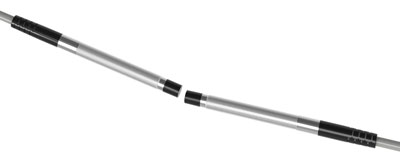“We have developed a technology platform that will revolutionise how we connect to the world,” says TE’s chief technology officer, Ulrich Wallenhorst. “Imagine a world where water or dust is not a factor in making sure that you can deliver power or data.”
He adds that the technology will allow power to be transmitted wirelessly, through water, walls or materials such as glass. “This innovation has the capability to change many industries, from electronics, food and beverages, to automotive, consumer – and, ultimately, manufacturing – in a historic way.”
The system is currently available in M12 and M30 formats. The M12 version can transmit 6W at 24V, while the M30 version can handle 12W at 24V. The technology currently has a 500Hz bandwidth for analogue signals and 1kHz for GPIO applications. Future versions will support data rates up to 1Gb/s, making them suitable for field bus communications.
The transmission range depends on the diameter of the transmitter/receivers. They can typically deliver maximum power up to about a third of the diameter of the couple. For M12 versions, that means a gap of 3mm.
The technology is aimed, in particular, at applications with moving parts and electronics that need to be connected in harsh environments. Because there is no physical contact, there is almost no wear and tear. Installation and maintenance costs can be reduced, and safety and ease-of-use can be improved.

According to TE, the new technology can:
• Cut maintenance costs Around 70% of unplanned downtime in applications such as robotics is caused by connector or cable failures. The contactless technology can reduce this dramatically because there is no wear and tear on the connector.
